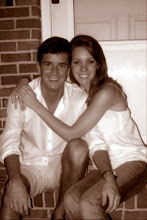William Butler Yeats has proven to be a breath of fresh air in our readings. I was beginning to tire over the same pattern of poetry that we've been following. While I could spot some differences in Victorian and Romantic poetry, they still remained very similar in wording and form (in my honest opinion). Yeats was different in that some of the poems shown in our book dealt with raw, complicated emotion that we have not seen yet. Yeats was infatuated with Maud Gonne, a lady who introduced herself to Yeats and informed him about the effect one of his poems had on her. This sparked Yeats to write poems to her, which all dealt with his love for her. When he eventually proposed to her, she declined and instead married and Irish soldier. Gonne was beginning to become somewhat of a political radical, and this provided fuel for the fire in Yeats.
In his poem, "No Second Helen", Yeats compares Helen of Troy to Maud Gonne. In the poem, he discusses the bitter rivalry between him and her husband. The rivalry is most evident in the following one line:
"Had they but courage equal to desire?" (p. 1118)
Essentially, he's comparing the soldier's courage to his, even thought they may be demonstrated in different forms. I really enjoy how the jealousy shines through in Yeats writing. He words it in a very simple way, but the emotion is thick. We see this most in the opening lines of the poem. He says,
"Why should I blame her that she filled my days
With misery, or that she would of late
Have taught to ignorant men most violent of ways,
Or hurled the little streets upon the great," (p. 1118)
I noticed that he never discussed any loss of love for her, but rather he pointed out all of her flaws. This shows me that Yeats still remembers the way the Gonne used to be like, and still hopes to have a chance at her.
Monday, June 23, 2008
Subscribe to:
Post Comments (Atom)

2 comments:
Daniel,
Good focus on this poem by Yeats (though note that the title is not "No Second Helen" but rather "No Second Troy"). I agree that Maud Gonne was a tremendous influence on his life and poetry, and also that his view of her in this poem suggests he does, as you say, still hopes to win her. He proposed marriage to her three times, and years later even proposed to her daughter (!); all unsuccessfully.
I agree with this post, Maud influenced the writer greatly. I also have a hard time telling the difference in Romantic and Victorian poetry.
Post a Comment